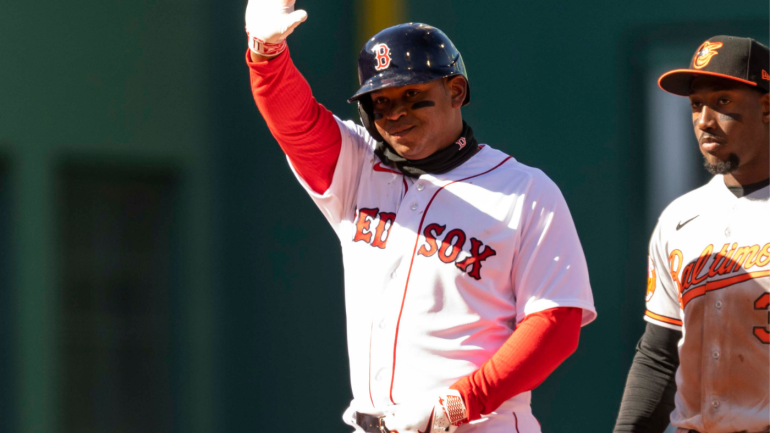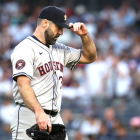
Major League Baseball implemented several new rules that could be considered radical changes in time for the 2023 season. The most-discussed entering Opening Day was the pitch clock. Just a few minutes after Cubs starting pitcher Marcus Stroman committed the first pitch clock violation in MLB history, we saw the opposite end happen in Fenway Park as a hitter was called for violating the new rules of the clock. Later in that game, we saw the first strikeout recorded via a violation.
Keep in mind, the pitch clock doesn't only go one way. Sure, the pitcher has to throw the ball within the allotted time (15 seconds with the bases empty and 20 seconds with runners on), but the batter also must be ready to hit in time. Specifically, the hitter must be in the box and ready before there are eight seconds remaining on the clock.
In the Orioles' game vs. the Red Sox Thursday afternoon, Orioles' right fielder Austin Hays became the first hitter to commit a violation of this rule in MLB history (Giants first baseman J.D. Davis committed one just about two minutes later in Yankee Stadium, narrowly missing out on being the answer to the trivia question). Boston's Ryan Brasier was on the mound for Hays' lackadaisical approach.
And then, later in that same game, Red Sox third baseman Rafael Devers was the first batter to be called out on strikes via an automatic strike violation. Remember, the hitter needs to be deemed ready by the time the clock hits eight seconds.
Watch as Rafael Devers becomes the first player in MLB history to be called out because of a pitch clock violation. 😐
— Codify (@CodifyBaseball) March 30, 2023
There's just not enough time to safely step out between pitches (even foul balls). pic.twitter.com/owm6v86aHJ
That seems awfully strict. Devers was in the box and in the process of getting himself ready, but he wasn't looking up at the pitcher at the eight-second mark. By rule, it was the right call, but it's also worth wondering if the umpires will get a bit more lenient as the season progresses. Regardless, it's something to watch here in the early going.
As a reminder, the violation carries an automatic ball if the pitcher is the offender and an automatic strike if the batter commits the violation.






















